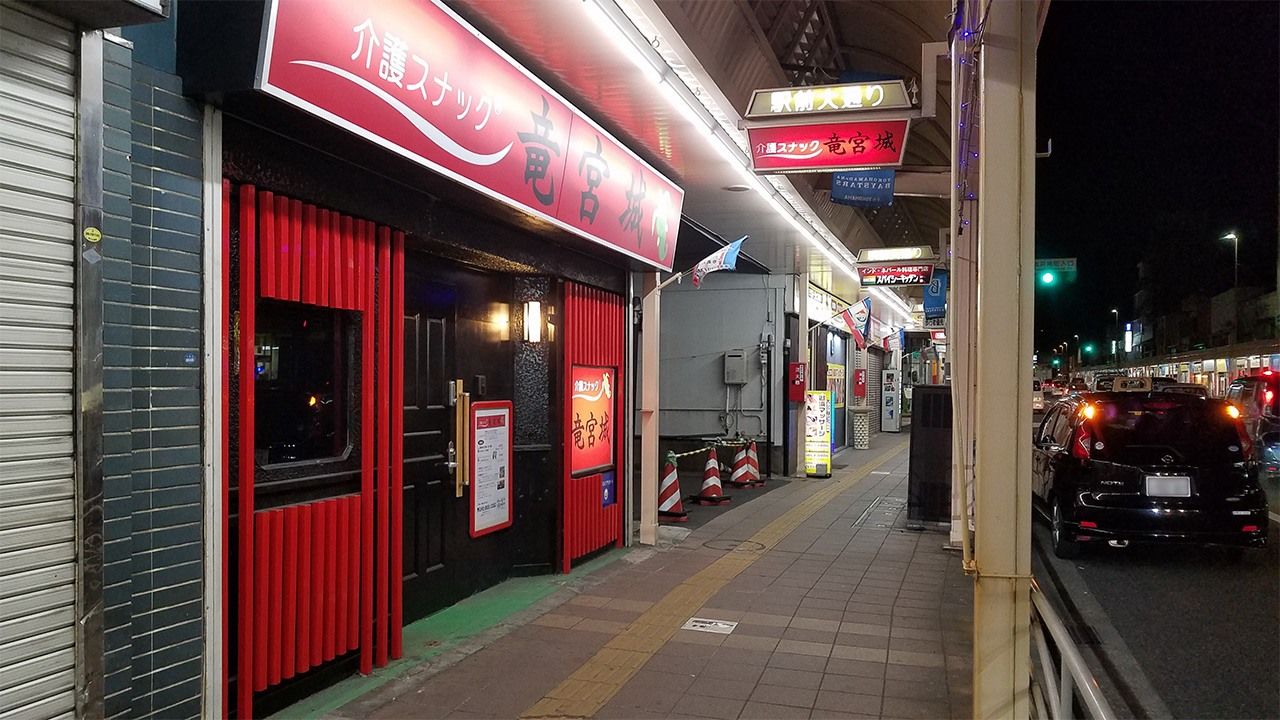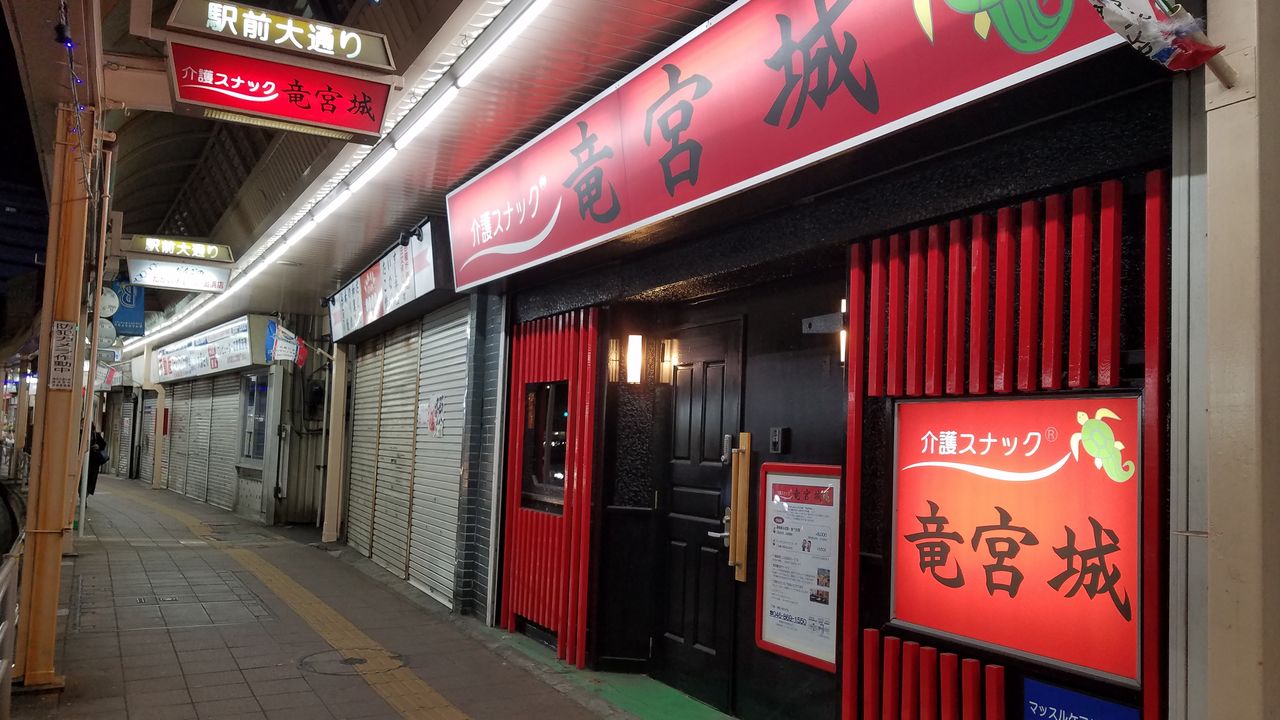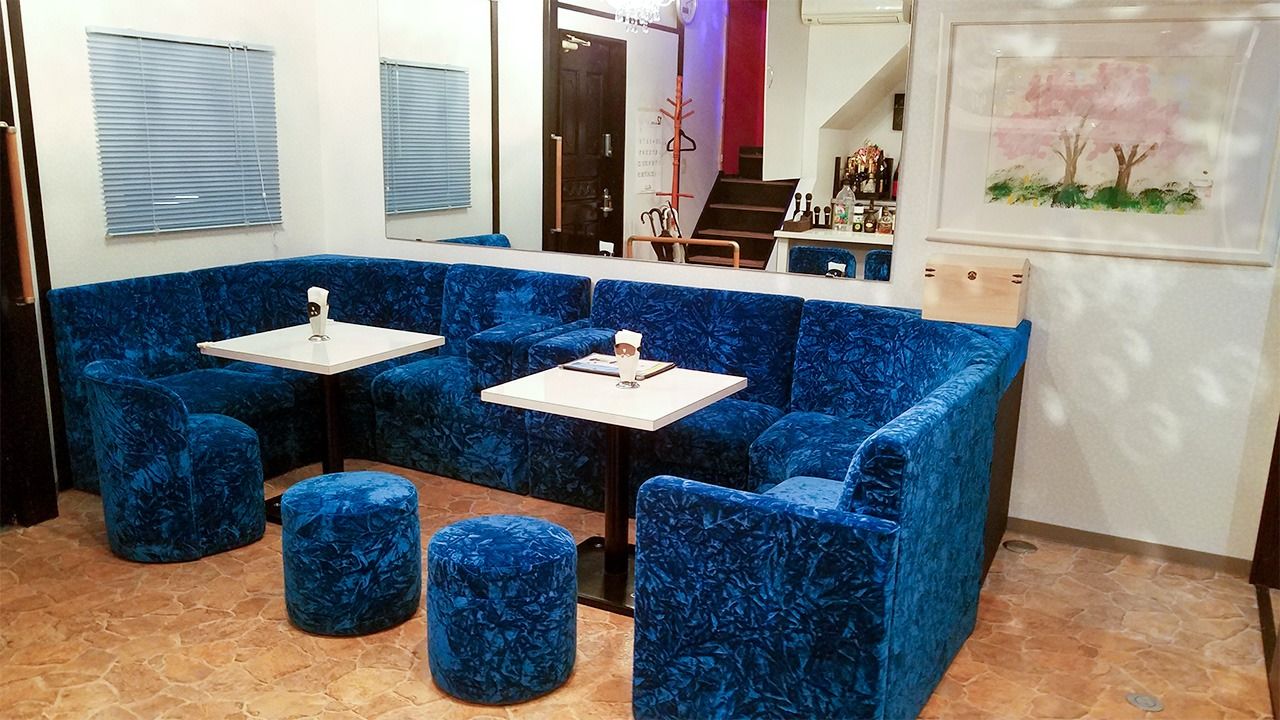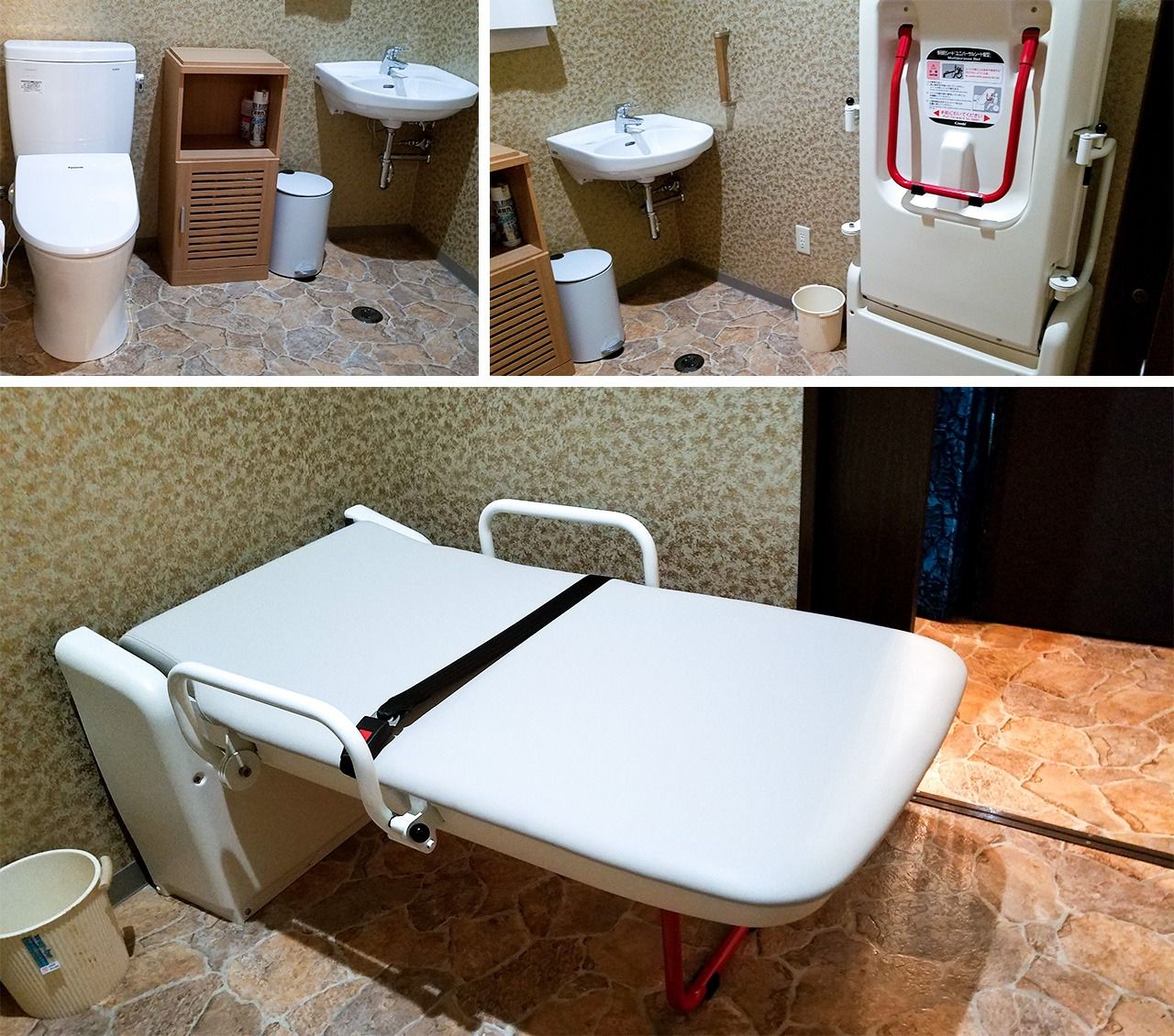
Nursing Care Nightlife: A Japanese Snack Bar Catering to Elderly Patrons
Society Health- English
- 日本語
- 简体字
- 繁體字
- Français
- Español
- العربية
- Русский
In Japan, snack bars have long been fixtures of nightlife. The cozy pubs typically have a bottled-lined bar where a smiling owner—a mama or masutā (master), depending on gender—plies a small circle of customers with highballs and other mixed drinks. First appearing in the early 1960s, they serve as oases where patrons can unwind after a long day, chatting, drinking, and occasionally pausing to croon a Japanese ballad into the shop’s karaoke machine.
Popularly known as sunakku, the bars derive their name from the snack-like fare served as part of fixed menus. The clever tactic enables them to self-identify as dining establishments, circumventing Japanese adult entertainment laws and staying open into the wee hours of the morning.
After more than a half-century, though, the customer base of such drinking establishments has gradually grayed. Instead of opening their doors only as dusk settles, a growing number of establishments are starting to also cater to elderly customers with such services as alcohol-free sessions of afternoon karaoke. An acquaintance of mine who runs a snack bar even hosts groups from a nearby assisted living facility on a semivolunteer basis, serving simple refreshments at the sing-along sessions.
A Specialized Clientele
Japan is aging at an alarming rate. According to government figures, by 2065 one in three people will be 65 or older and one in four will be over 75. The stark reality of this has started people like Sasaki Takaya thinking about new ways to serve Japan’s burgeoning population of seniors. Several years back he opened Ryūgūjō, a pub in Yokosuka, Kanagawa Prefecture, that caters exclusively to older customers.
A two-minute walk from Oppama Station on the Keikyū Main Line, the bar is easily identifiable by its red façade, a bright contrast with the dilapidated storefronts and gray shutters of the surrounding shopping arcade. Sasaki wanted to give senior citizens, including those needing nursing care, a way to socialize outside home or care facilities, striking upon the idea of a new kind of drinking establishment that he christened kaigo sunakku—a “nursing care snack bar.”

Yokosuka’s Ryūgūjō is a bright spot of business in an otherwise quiet shopping arcade.
I often mention Ryūgūjō when giving talks about snack bars. Audience members typically either chuckle over the image of wizened geriatrics chatting up the bar’s mama or frown disapprovingly at the idea of elderly tipplers drinking on the tab of the national nursing care scheme. I try to disabuse listeners of such assumptions—Ryūgūjō customers pay out-of-pocket, not with their insurance plans—and give a straightforward picture of the services the shop provides.
Sasaki, who is in his early forties, is an entrepreneur and Yokosuka local. He started his career as an acupuncturist before transitioning into caregiving, and now runs several businesses in different areas of the nursing care industry. His experience in the field is helping him to run Ryūgūjō.
The shop makes no bones about its customer base. It limits service to patrons aged 65 or older and even provides transportation to and from the establishment. Sasaki has gone to great lengths to create an authentic atmosphere where customers of all physical abilities can relax. The establishment boasts the florid decor typical of snack bars but is fully barrier free, including a folding bed in the restroom for changing adult diapers. It also has a front door with a passcode to prevent customers with dementia from accidentally wandering outside.

Ryūgūjō’s garishly colored booth would fit in at most any other snack bar.

Bottles of whiskey, shōchū, and other liquors line the bar.

Ryūgūjō’s restroom is wheelchair accessible and has a foldable bed for changing adult diapers.
The shop is staffed by specialists including nurses, licensed caregivers, and physiotherapists from Sasaki’s other nursing care businesses. To ensure that each customer receives appropriate care, Sasaki prior to visits talks with family members or staff of the nursing care facility where prospective customers reside to ascertain their physical condition and determine the type and quantity of alcoholic drink, if any, they may consume. Choking is one concern, and staff will add a thickening agent to drinks to aid people who have difficulty swallowing.
Ryūgūjō accommodates customers in varying degrees of health, including people who are bedridden or are in late stages of illnesses like cancer. For many patrons, a visit to the bar represents a chance to step out of their regular nursing-care routine and enjoy socializing with friends and loved ones as they did when they were younger and healthier.
Transforming the Nursing Care Business
Sasaki says his parents were the inspiration for Ryūgūjō. “I thought about how confining it would be if they ever reached a stage where they had to depend on the help of others to get around,” he explains. “I want them to be able to have drinks with friends from time to time instead of staying cooped up at home for fear of putting others out.” Sasaki states that the bar has made a major difference in people’s quality of life. “Regulars come around once in a while and have a great time while they’re here. Seeing the amount of joy they get makes everything worthwhile.”
Getting Ryūgūjō up and running was no easy task, though, and Sasaki could easily fill the pages of a book. For instance, to prevent criminal groups from taking the idea to prey on senior citizens, Sasaki registered the name “nursing care snack” as a trademark. He also talked extensively with local police to make clear the shop’s intention so as to avoid being lumped together with standard snack bars, which are subject to special ordinances under Japan’s adult entertainment law.
All this effort reflects Sasaki’s vision and business acumen. Local businesses and some further afield have started taking notice of Ryūgūjō, and Sasaki is using the feedback he receives from around the country to improve his nursing care operations. I sincerely hope that his experiment will help shape the nursing care industry going forward and have a positive impact that will ripple across society as a whole.
(Originally published in Japanese. All photos by author, expect where otherwise noted. Banner photo: The entrance of Ryūgūjō in Yokosuka, Kanagawa Prefecture. © Kaigo Sunakku Ryūgūjō.)